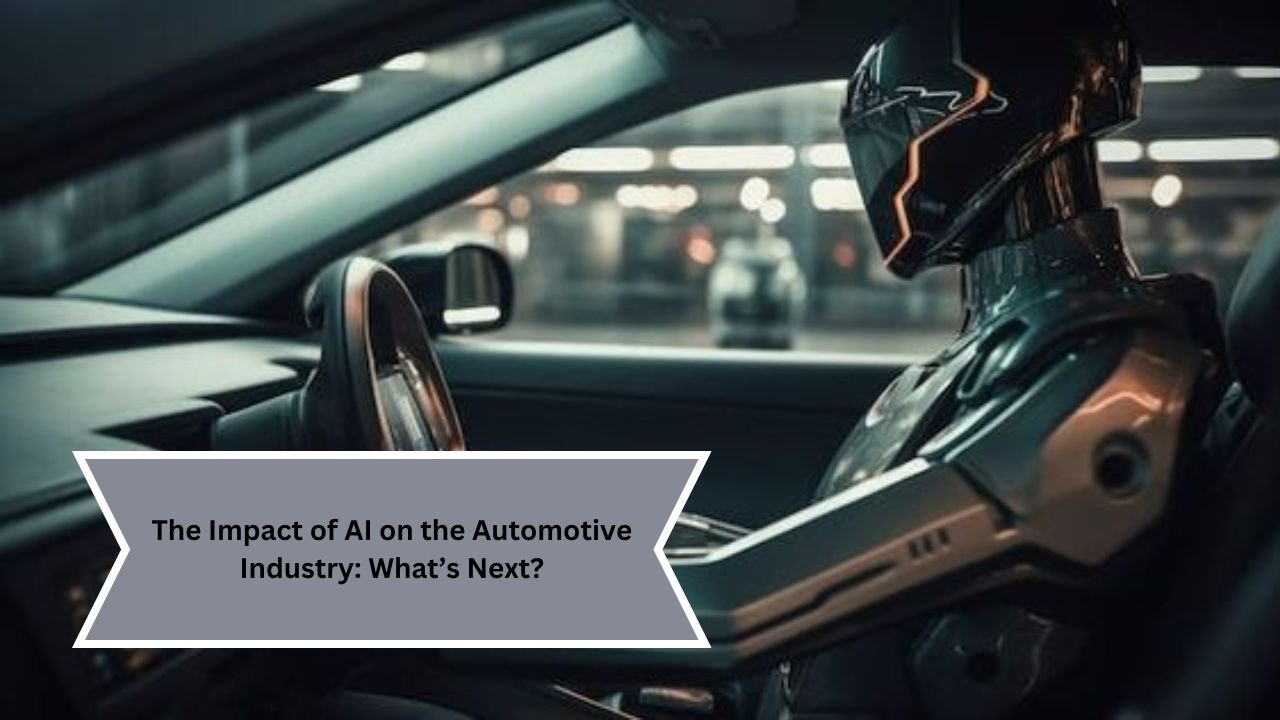The automotive industry stands on the brink of a transformative era, fueled by the rapid advancements in artificial intelligence (AI). From enhancing vehicle safety to revolutionizing manufacturing processes and reshaping customer experiences, AI’s influence is profound and far-reaching. As we explore the impact of AI on the automotive sector, we will consider its current applications, potential future developments, and the challenges that lie ahead.
Current Applications of AI in Automotive
1. Autonomous Vehicles
One of the most significant impacts of AI in the automotive industry is the development of autonomous vehicles. Companies like Waymo, Tesla, and Uber are leveraging AI algorithms to enable cars to navigate complex environments without human intervention. These vehicles utilize machine learning, computer vision, and sensor fusion technologies to interpret their surroundings, make decisions, and adapt to changing conditions. As the technology matures, fully autonomous vehicles could reshape urban transportation and reduce traffic accidents significantly.
2. Enhanced Safety Features
AI plays a critical role in improving vehicle safety through advanced driver-assistance systems (ADAS). Features like adaptive cruise control, lane-keeping assist, and collision avoidance systems rely on AI to analyze real-time data from cameras and sensors. These systems can detect potential hazards, alert drivers, and even take corrective actions to prevent accidents. By reducing human error, AI contributes to safer roads and fewer fatalities.
3. Predictive Maintenance
AI’s predictive analytics capabilities are transforming how manufacturers and service providers approach vehicle maintenance. By analyzing data from sensors embedded in vehicles, AI can predict when parts are likely to fail and recommend maintenance before issues arise. This proactive approach not only enhances vehicle reliability but also reduces costs for consumers and manufacturers alike.
4. Supply Chain Optimization
The automotive supply chain is complex and multifaceted. AI is being utilized to optimize inventory management, demand forecasting, and logistics. Machine learning algorithms can analyze historical data and market trends to predict demand, helping manufacturers make informed decisions about production schedules and inventory levels. This optimization reduces waste and ensures that the right components are available when needed.
Future Developments in AI for Automotive
1. Greater Integration of AI and IoT
The integration of AI with the Internet of Things (IoT) is set to revolutionize the automotive landscape. As vehicles become increasingly connected, AI will enable real-time communication between cars, infrastructure, and users. This connectivity will facilitate smarter traffic management, enhanced navigation systems, and personalized user experiences. For example, vehicles could communicate with traffic lights to optimize routes and reduce congestion.
2. Advanced Personalization
As AI technologies evolve, we can expect a significant shift towards personalized driving experiences. By analyzing data on driver behavior, preferences, and even emotional states, AI can customize vehicle settings such as climate control, seating positions, and infotainment options. This level of personalization will not only enhance comfort but also create a deeper connection between drivers and their vehicles.
3. Sustainable Practices
The automotive industry is under pressure to become more sustainable, and AI can play a pivotal role in this transition. From optimizing manufacturing processes to reducing energy consumption and emissions, AI-driven solutions are essential for creating greener vehicles. Furthermore, AI can aid in the development of electric vehicles (EVs) by improving battery management systems and enhancing charging infrastructure.
4. Regulatory and Ethical Considerations
As AI becomes more prevalent in the automotive sector, regulatory and ethical considerations will become increasingly important. Policymakers will need to establish guidelines for the safe deployment of autonomous vehicles and ensure that AI algorithms are transparent and unbiased. Addressing issues such as data privacy, cybersecurity, and accountability in case of accidents will be crucial for gaining public trust.
Challenges Ahead
While the potential of AI in the automotive industry is immense, several challenges must be addressed to realize its full benefits.
1. Data Privacy and Security
As vehicles collect vast amounts of data, concerns about privacy and security will grow. Manufacturers must implement robust cybersecurity measures to protect user data from breaches and ensure that sensitive information is handled responsibly. Building consumer trust will be essential for the widespread adoption of connected and autonomous vehicles.
2. Integration with Legacy Systems
Many automotive manufacturers still rely on legacy systems that may not be compatible with new AI technologies. Integrating AI solutions into existing infrastructures can be a complex and costly process. Companies must invest in upgrading their systems and training their workforce to fully leverage the advantages of AI.
3. Public Acceptance
Public perception of autonomous vehicles is still mixed. Concerns about safety, job displacement, and the reliability of AI technologies can hinder acceptance. Effective communication, transparency, and education will be essential in addressing these concerns and building confidence in AI-driven solutions.
4. Regulatory Hurdles
The regulatory landscape for autonomous vehicles and AI applications in the automotive industry is still evolving. Manufacturers must navigate a patchwork of regulations that can vary significantly by region. Advocacy for clear and consistent regulations will be necessary to facilitate innovation and ensure safety on the roads.
Conclusion
The impact of AI on the automotive industry is already profound, and its future implications are both exciting and complex. As we move toward an era of increased automation, personalization, and sustainability, the automotive sector will continue to evolve in response to technological advancements. Addressing the challenges of data privacy, legacy system integration, public acceptance, and regulatory compliance will be crucial for the successful implementation of AI in this industry.
Ultimately, the journey of AI in the automotive world is just beginning, and the next few years will be critical in shaping how we drive, interact with our vehicles, and envision the future of transportation. The convergence of AI and automotive technology promises to revolutionize the industry, paving the way for a safer, more efficient, and more personalized driving experience.
| HOME | CLICK HERE |
| AUTOMOBILE NEWS | CLICK HERE |

